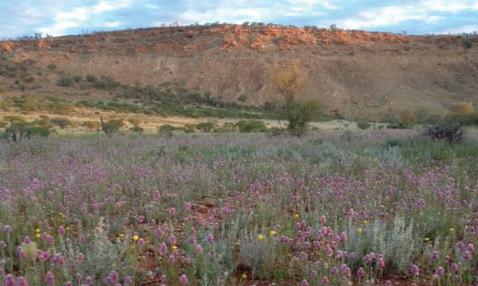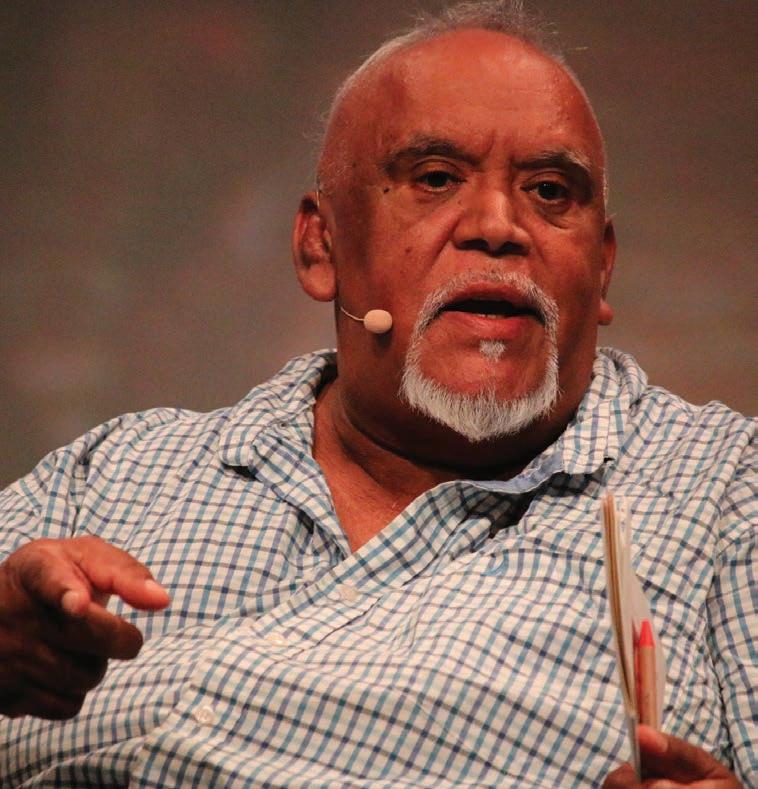
39 minute read
Inside: Apologies and denial
While it is nine years since Prime Minister Kevin Rudd presented a national apology to the Stolen Generation, some Australian community members remain sceptical about the reality of this part of our shared history.
That was a harsh fact faced by over one thousand people who came together at the Adelaide Convention Centre on 13 February to mark the anniversary of the National Apology. The Reconciliation South Australia event was addressed by Stolen Generations survivors, who spoke of their experiences and shared their feelings about those who refused to listen and learn from their stories.
Advertisement
Kinchela Home boys Uncle Richard Campbell and Uncle Roger Jarratt and Cootamundra home girl Auntie Wilma Moran are Stolen Generations survivors who were involved in the SBS TV series First Contact. Excerpts from the program were shown at the breakfast.
The TV show featured well known nonIndigenous Australians learning about the Stolen Generations from survivors themselves. Politician David Oldfield was one of those prominent Australians and he seemed reluctant to accept what he heard from the survivors.
In comments made of the program he seemed to reject the idea that the experience of the people he spoke to amounted to a systematic racism, which was inflicted particularly on Aboriginal families. Reconciliation SA Co-chair Professor Peter Buckskin asked Uncle Richard Campbell what it was like to have his experience denied on the TV program.
“It wasn’t good, especially David Oldfield. That’s what we’ve got to deal with in Australia itself, just actually saying that we weren’t stolen children we were rescued children. But how do you rescue children that you have to be putting in an institution like that?” he asked.
Mr Campbell said that the other celebrities on the program, including singer-songwriter Natalie Imbruglia; TV celebrity and former music industry executive Ian ‘Dicko’ Dickson and comedian and radio presenter Tom Ballard were willing to listen and learn. Professor Buckskin asked Mr Campbell if he saw discussions like he had had on the program as a part of his healing, and he responded that this particular experience had helped the Kinchela Boy’s home children re-unite.
“I’ve only been back together with the boys in the last three to four years, and before that I suppose I was still in the wilderness, but once I got back I felt a real brotherly love again. Because we actually had to make a family again, because we was taken away from family. And through this experience it actually brought us back together. And that healing, every time we get together we heal together, just talking about the situation,” he said.
He said that the boys in the home became his family because he had left his family behind, so who he grew up with became his family. He had lost his identity and language. “As soon as you walk in the gate, they hit you in the back of the head and they say:
“You’re not Richard Campbell, you’re number 28.”
“You’re not black, you’re white.”
“You’re not Aboriginal, you’ve got no spirituality, you’ve got no family, they’re all dead.”
Local woman Jenny Caruso told the audience at the event that she was
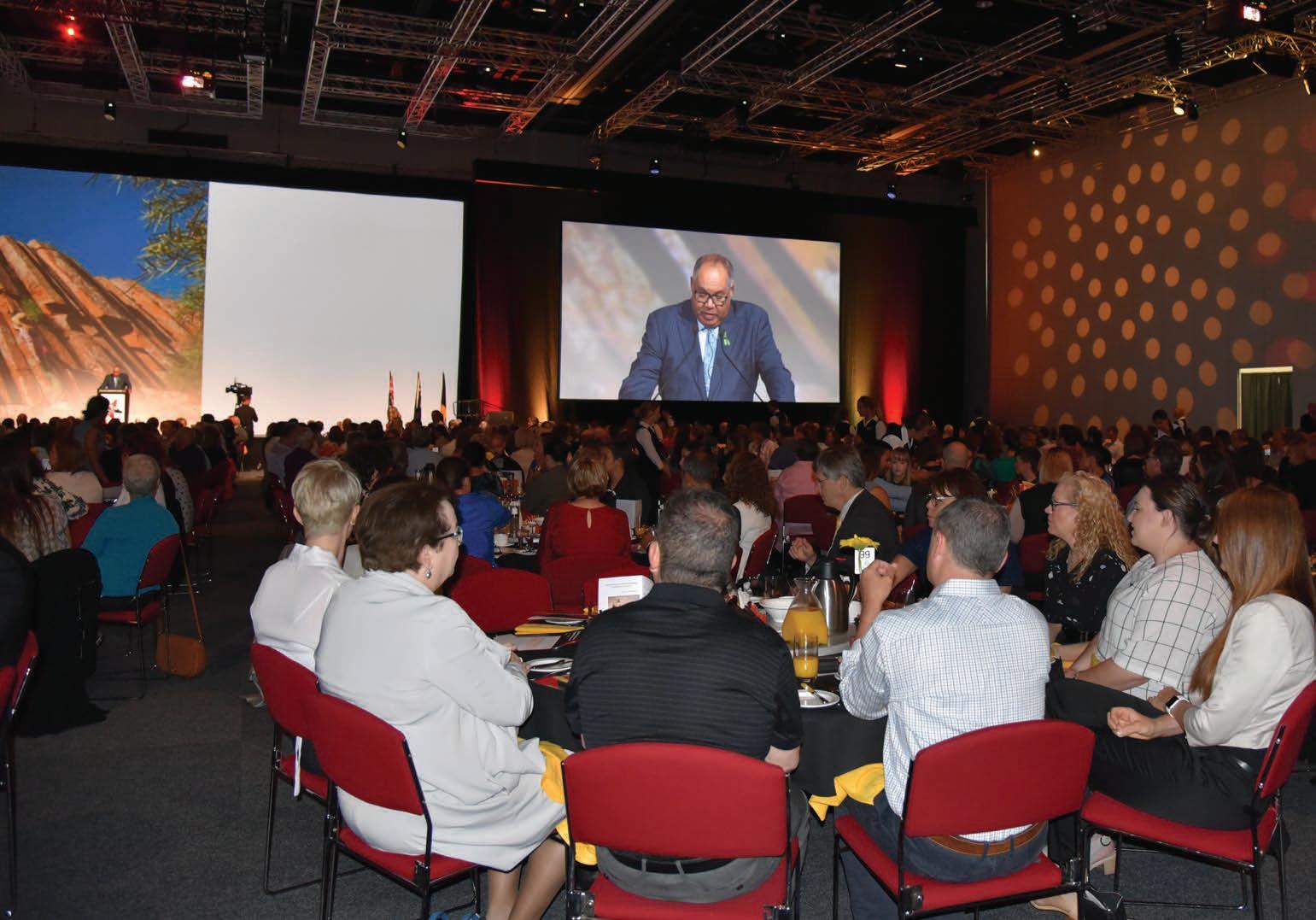
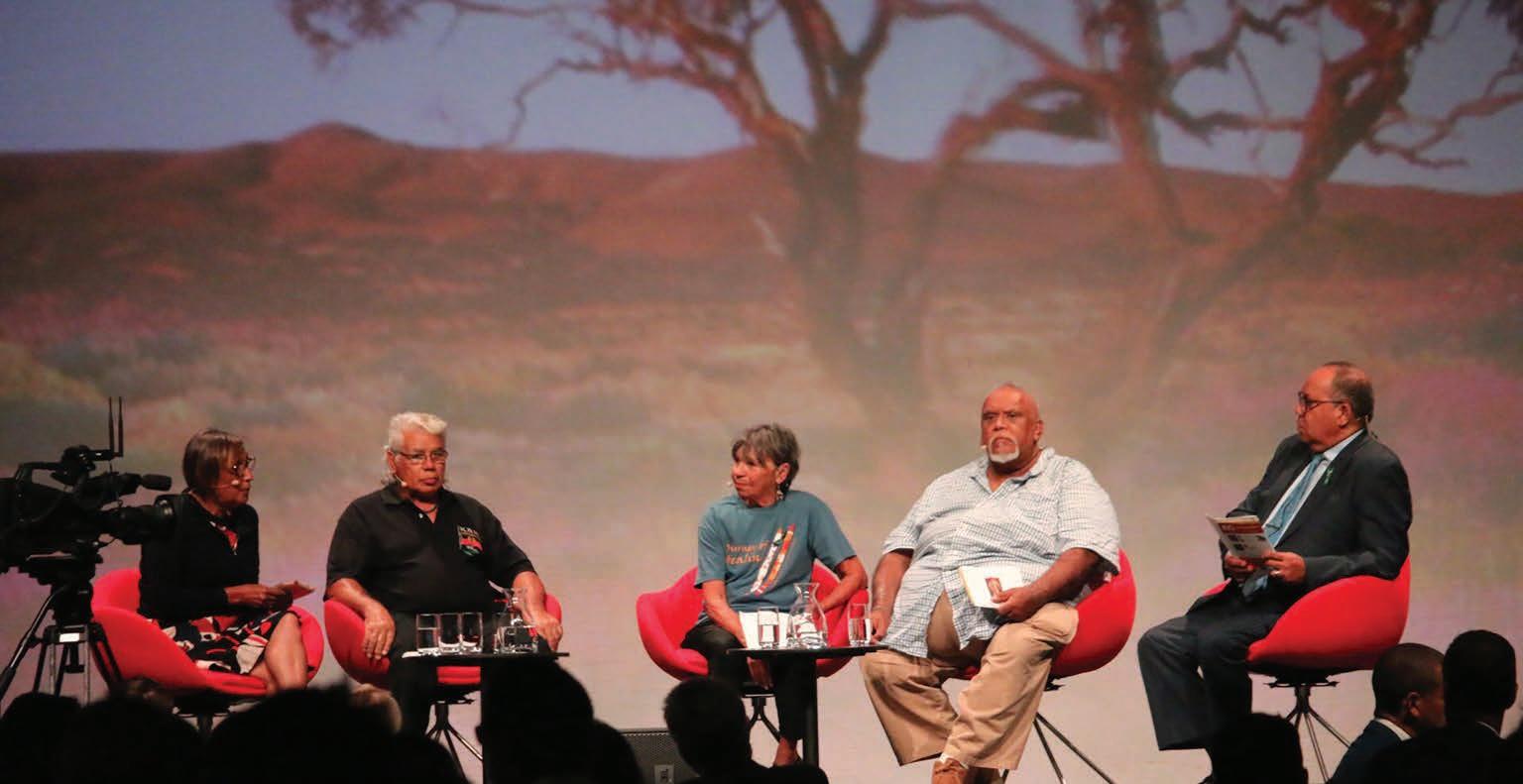
removed from her family in the Northern Territory in the 1950s.
“As were many of the children in the Northern Territory and there was legislative alliances between the NT and SA in relation to the removal and placement of what were deemed to be half-caste children,” she explained.
Ms Caruso spoke about the impact that the language of that time, including the term ‘half-caste’ had on identity.
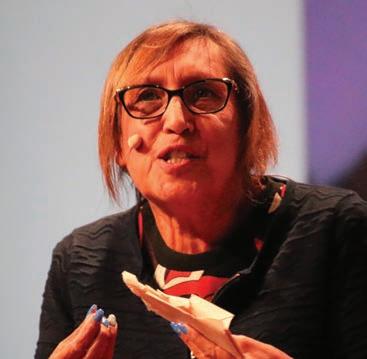
Audience members at the event spoke to Aboriginal Way about how the Apology Breakfast and discussions of denial made them feel:
“It’s given me the opportunity to connect with my community and to share in their healing.”
“Well I think it makes me feel really sad that perhaps people can not see, or are using terminology in policies, to explain away their racism.”
“It’s wonderful to be here and support such a significant event – nine years since the apology. For our survivors it’s important that we recognise and support the ongoing healing for them, their families and our communities.”
“It would be a wonderful thing to see we all recognise the pains of the past, so we can all heal as a country and move forward in the future. But we can’t move forward without recognising our past.”
“I think it’s disgusting, but the thing is they are ignorant and you’ll never educate ignorant people because they are too closed minded to want to know what actually happened, because there’s no willingness to open their mind.”
“I just think they’re all so brave, you know they’ve got no anger and they really should have a lot of anger, it’s just disgusting, there’s no reason to be taken out of their homes, and they’ll never get that back.”
“I really enjoyed the event, I would like to hear more of the history of the stolen generation, I think it’s like a lot of things in the past, we tend to lose contact with them, once those people disappear from in front of us. It’s a bit like cultures and languages, once they’ve gone they’ve gone and I think it’s something we should never forget.”
“Really proud and good. And a lot of people would have heard stories that they haven’t heard before and that’s good because if we learn about each other that improves communication and gives greater understanding and we can come together as one.”
“It’s always very powerful, the recognition and just getting together to see the survival and the strength of the people. And the rest of Adelaide society getting together and supporting is really a very powerful thing to have.” “We come to live that term because we are taught to live that term. My aunties who are here from Croker Island, not only are they my Aunties, they are my family, they are my role models and they are my mentors. But if you have a look at us and you line us up against other mobs of people, which is what was done and the differentiation was made on our skin tone, and our facial features as well, and so they were the determinants,” she said. “They were determined by social science, they were determined by anthropologists, and the government took that on. As did the social scientists, they made up the words and then they said ‘this is the truth’ and they built a propaganda around it. A propaganda that affected every single Aboriginal person in the country,” said Ms Caruso.

She said that arguments saying the removal of children from their families wasn’t a race based policy, or that it was only done to provide care for children, did not stand up.
“People say it wasn’t about race. So you can say, ok it wasn’t about race – it was about skin colour. So if it was about skin colour it was about race. So it’s a very short argument. And they say it was about care, it was about care and there were no policies. To say there were no policies is to be unread. To say there were no policies is to show to what extent you have chosen not to expand your education and your own self-knowledge. And if you are a person in a position of power who has chosen to do that, you have no right to be in that position of power,” she said.
Top: Apology Day breakfast panel, left to right, Jenny Caruso, Roger Jarratt, Wilma Moran, Richard Campbell and Peter Buckskin. Above left: Jenny Caruso addresses audience. Above right: Stolen Generations survivors light candles at the Apology Day breakfast.
Well when I was 11 years old they come to the mission, like a big black car pulled up, and the sergeant from Bowraville Mission got out with the welfare man dragged us out kicking and screaming and put us in a car.
And then the next thing I know we were walking through these gates at Kinchela Boys home and then they took us down to this room where they give you your bundle with your number on it and took all our clothes and burnt them in the incinerator. And I had shoes when I went to Kinchela, but they never issue any shoes at all while you’re there. The only shoes they gave you was when you were at the high school. So they burnt all the clothes, they give me a big boys clothes and they were second hand and they were all cotton, cotton jumper, cotton t shirt, everything was cotton. And they shaved my hair bald with me other brother Philip as well and they took us down to the shower block, they gave us a big scrubbing brush and we had to scrub ourselves in this shower, cold. Then they threw this white powder over us and then gave us some clothes to put back on. By that time it was tea time and they took us in to this big room where all the other brothers now I know, where sitting down having their tea. And you know I just couldn’t eat that day, just couldn’t eat.
I was put in a big boys dormitory, my other brother was put in a little boys dormitory, and you had a bed, two sheets, one blanket, like it was a woollen blanket and that was it, like you were cold, it didn’t matter you had to cuddle up and... I cried every night, because I was taken there, I didn’t know what I had done wrong, through my life I’d heard that bad people are taken and put in jail, and this place was like jail, it was worse than jail it was like hell. And I cried every night, not so the other boys and the staff didn’t see you. And of a daytime they gave you a duty what to do and you had to do it perfect, otherwise they’d belt you all the time. I was born in 1947, we weren’t allowed in hospitals because we were Aboriginal we were passed as fauna, animals, I was born with my feet turned in crooked and when I was four years old they took me to Sydney and I had an operation on them and I walked around with braces on for about 12 months, and ever since that time I walked funny. And staff used to come up and bash me on the head and belt me with a stick because I wasn’t walking properly. They were vicious and cruel and the food that was there was put in a galvanised garbage bin they had back in those days and the weevils got into all the pastas, and the Weet Bix and porridge and everything full of weevils and they’d dish it up to you and if you didn’t eat it you had to eat it next time you had a meal until you actually ate it. So you’d be picking weevils out before you had your food. And then they’d as you got older they sent you over the back to milk the cows on the weekend because the big boys had the weekend off, and they got you up a four o’clock in the morning it was dark and you had a little lamp, a little kerosene lamp and you had to walk down and the cattle were still lying down it was still dark at four in the morning and you’d be tripping over them and you had no shoes so your feet and legs and everything would crack with frost it was that cold and in your hands and that. And you’d bring the cattle back up and where they’d actually drop their business, you’d put your feet in to keep warm. You know gumboots would have been magic but they never gave any shoes, the only shoes they gave you was when you went to high school and every afternoon when you come home, like when you went to go to high school it was a relief because you were getting out of that jail, you felt real good because you were going up and you weren’t being pushed around and bashed any more. All the time I was in Kinchela you see the boys that were actually molested, my second oldest brother Kerry, he was molested, and they walk around with their heads down, and for their dignity, you didn’t go up and ask them what happened, because you knew what happened. God almighty, it was unreal. I was that depressed I couldn’t learn nothing, as they say I was dumb in that way, I was in the class at 2G at high school, like that’s the lowest anybody can go. And when I was 14, the manager pulled me out because I couldn’t do any better, and I was brought back and put on work duty until some of the boys actually ran away. Because I settled down, a job came washing dishes at a hostel, that was my first job, washing dishes and making toast and that and eventually I played football at a club where I met my wife and this year we’ve been married 51 years, I’m really grateful, you know, that she supported me all this time.
When I was taken I was 11 years old, and I was in the process of learning things to be initiated. Like that when the tea tree used to flower, you couldn’t catch the brim because the brim had fish roes inside, so any other species you could catch you could eat, and if another tree species flowered with different other fish, you’d learn not to when they flower not to actually take the fish so you are actually farming your fish as well, not eating them out so you’re going to starve so I was going to be initiated. But as I said they come and grabbed me and I ended up at Kinchela and I lost all my culture, all identity is totally stripped away and when I go back to see my family, I know they are my brothers and sisters, but I just there’s something missing there for this love. I don’t know what love is, I’ve been looking for it all my life since I came out of Kinchela but it’s like in Kinchela with the boys, that’s my second family. I lost my original family, and we were like little monkeys in their hot bath, all huddling together. That’s all we had to do, was support each other and we became very strong together and its really good that we got back together now, it gives us something positive. If you go right back to the day dot when the convicts first come here we were put in a situation we couldn’t get out hunting and gathering because they put fences up and said keep off my land black fella, they’d shoot you. So they’d put you on missions and give you rations and the rations were to buy sugar, flour and tea. You weren’t allowed to get any meat, or anything and because you couldn’t go out and hunt to get the meat you’d sit down the river and fish, but the thing is when they take everything away from you and then they come back and say you are a neglected child, the truth is we were neglected by the government that made these policies and they made our parents look really bad, I feel honestly my mum’s passed now, but the amount of pain she had gone through, I feel really sorry that she’s... She’s probably looking down and seeing what’s going on now, and I hope she is, and you know realise that things are starting to change. We were actually, she signed a letter saying that we were only taken for 12 months while she go, she was sick, and we were supposed to come back 12 months later, my sisters were taken up to Cowper which is up near Grafton to a Catholic Institution and they come back 12 months, but the one time mum came down to Kinchela you know I thought the time was up, then me and my other two brothers raced up to the gate and said “oh good god we’re going home, get me out of this hell” and when we got up mum had some biscuits and cordial and we had a drink with her.
At the end of the time mum went back to the gates, we were still locked in there. And I regret to this day I said to Mum “please don’t come back, you’re hurting me and you’re hurting yourself” so I’ve regretted that all my life.
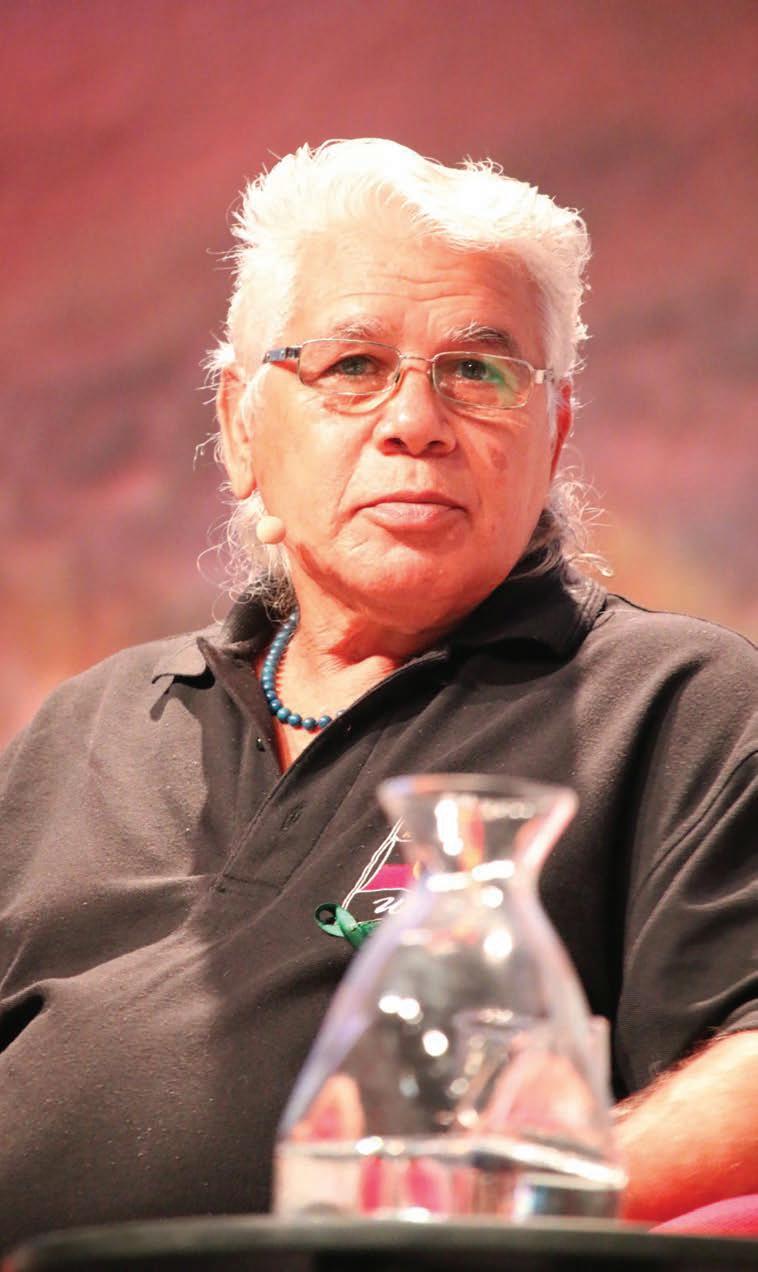
Uncle Roger Jarratt, Kinchela Boy number 12 as he describes himself, was a speaker at Reconciliation SA’s 2017 National Apology Day breakfast in February.
This year marks 25 years since the historic Mabo case in which the High Court recognised Aboriginal and Torres Strait Islander’s traditional ownership to country and native title was born.
In 1993, the Keating Government prepared and introduced legislation, the Native Title Bill 1993, in response to the Mabo decision.
According to the National Native Title Tribunal 25 years website, ‘There was strong opposition to the proposed legislation by the mining and pastoral industries and the debate was fierce and intense, receiving much media attention’. After a lengthy and complex consultation process, the Bill passed through both houses of Parliament, passing through the Senate on 21 December 1993, and receiving royal assent on 24 December 1993. The Native Title Act (Cth) commenced operation on 1 January 1994. Since then, native title lawyers and anthropologists along with other stakeholders have worked with traditional owners across the country to file native title claims and eventually have their native title rights recognised by the Federal Court of Australia.
To date there have been over 370 native title determinations and over 31 percent of Australia’s landmass has been determined by the federal court to have some existing native title rights. Over 11 percent have exclusive native title rights. Raelene Webb QC, President of the National Native Title Tribunal said native title management is now a strong focus of native title groups and services. “Native title is now evolving into a post determined world with an energetic focus on the management of native title and the operation of Prescribed Body Corporates (Aboriginal native title corporations),” said Ms Webb.
Glen Kelly, Native Title Council CEO stated that we are now working towards a society where Aboriginal people contribute more profoundly to our political system. “I think the negotiation people have been engaged in have loosened up the political system in Australia… Native Title has brought on conversation to allow us to break through more barriers and in my view we want to be a more inclusive society were Aboriginal people are prosperous were peoples culture and connection to country is secure,” he said. Keith Thomas, South Australia Native Title Services CEO said native title has come a long way in the last 25 years and it continues to create opportunities for Aboriginal people. “In South Australia, perhaps more than any other jurisdiction, there has been a commitment to resolve native title through negotiation and consent rather than litigation. To date, approximately 56 percent of the State is subject to determined native title and of the 26 determinations of claimant applications, 24 have been made by consent.
“Importantly native title has given recognition to traditional owners and opportunity to rebuild their nations. Some claims have taken close to 20 years to be determined and others are still waiting for their recognition. What we can do now is assist to create opportunities for groups and help them become sustainable,” said Mr Thomas.
At the National Native Title Conference last year, Melissa George, Wulgurukaba Traditional Owner and the CEO of North Australian Indigenous Land and Sea Management Alliance Ltd (NAILSMA) presented the annual Mabo Lecture.
In terms of how far we have come, Ms George said we are still struggling with the same issues we were over 20 years ago, that is “the rights as citizens, recognition and achievement through self determination, ability to exercise our rights and to share equitably in the provision of government programs and services protection of our cultural integrity and heritage, and increasing participation in Australia’s economic life”.
Ms George said for her it is still the question of ‘what have we got?’. “It is about ensuring that the role of Aboriginal and Torres Strait Islander land and sea managers – the doers – is recognised, supported and valued. Now let’s face it, this is not an easy task and it is an issue that is multifaceted in its application. Looking after Country is not just about protecting and managing plants and animals or working with weeds and feraI animals. It’s also, and more importantly, about people. People’s ability to keep their culture strong, derive an income from their country, which would create opportunities for their children, and, within all of this, developing the capability of their community organisations to enable them to facilitate strategic long-term outcomes.
“In essence it is about reclaiming our sovereignty; the capacity for Aboriginal and Torres Strait people to live on our traditional country on our terms and not at the behest of government,” said Ms George. Mr Graham Neate, a leading contributor to Indigenous land rights, said “the law has been clarified and we have much more certainty about where native title exists and where it wont be recognised.
“For some groups and only some groups this has led to significant commercial and financial income… they and their children and their grandchildren and beyond will benefit because of negotiated outcomes,” he said.
What is native title?
Native title is the recognition in Australian law that Aboriginal people continue to hold rights to their land and waters, which come from their traditional laws and customs. Those laws and customs must have been acknowledged and observed in a substantially uninterrupted way from the time of settlement until now – National Native Title Tribunal.
Native Title Act 1993 – Sect 223 Native title: Common law rights and interests
(1) The expression native title or native title rights and interests means the communal, group or individual rights and interests of Aboriginal peoples or Torres Strait Islanders in relation to land or waters, where: (a) the rights and interests are possessed under the traditional laws acknowledged, and the traditional customs observed, by the Aboriginal peoples or Torres Strait Islanders; and (b) the Aboriginal peoples or Torres Strait Islanders, by those laws and customs, have a connection with the land or waters; and (c) the rights and interests are recognised by the common law of Australia.
The purpose of the Act is to:
(a) rectify the consequences of past injustices by the special measures contained in this Act, announced at the time of introduction of this Act into the Parliament, or agreed on by the Parliament from time to time, for securing the adequate advancement and protection of Aboriginal peoples and Torres Strait Islanders; and (b) ensure that Aboriginal peoples and Torres Strait Islanders receive the full recognition and status within the Australian nation to which history, their prior rights and interests, and their rich and diverse culture, fully entitle them to aspire. To achieve native title the following conditions must be met: • the rights and interests are possessed under the traditional laws currently acknowledged and the traditional customs currently observed by the relevant Indigenous people; • those Indigenous people have a ‘connection’ with the area in question by those traditional laws and customs; and • the rights and interests are recognised by the common law of Australia.
What is the Native Title Act?
The Native Title Act was first introduced Australian Law in 1993. The Law came after the High Court recognised the land rights of the Meriam people, the traditional owners of the Murray Islands (which include the islands of Mer, Dauer and Waier) in the Torres Strait. The decision changed the Australian legal system’s idea that sovereignty meant the Crown-owned all land in the new colony and it recognised the rights and historical connection that Aboriginal and Torres Strait Islander People have to the land. The Native Title Act 1993 (NTA) established the procedure for making native title claims. The Act has been amended on several occasions, including 1998, 2007 and 2009.
What is the Mabo decision?
This first successful claim for native title was led by Eddie Koiki Mabo. It has become known as the historic Mabo decision. Legal proceedings for the case began on 20 May 1982, when a group of Meriam men, Eddie Koiki Mabo, Reverend David Passi, Celuia Mapoo Salee, Sam Passi and James Rice, brought an action against the State of Queensland and the Commonwealth of Australia, in the High Court, claiming ‘native title’ to the Murray Islands (AIATSIS, 2016). The Mabo case ran for 10 years. On 3 June 1992, the High Court of Australia decided that terra nullius (nobody’s land) should not have been applied to Australia. This decision recognised that Aboriginal and Torres Strait Islander peoples have rights to the land – rights that existed before the British arrived and can still exist today. The Mabo decision was a turning point for the recognition of Aboriginal and Torres Strait Islander peoples’ rights, because it acknowledged their unique connection with the land. It also led to the Australian Parliament passing the Native Title Act in 1993. Sadly, Eddie Mabo never found out the result of his legal case. He died in January 1992, just five months before the High Court made its decision (Reconciliation Australia, 2016). The National Native Title Tribunal launched a special website dedicated to celebrating the achievements of native title and recognising the challenges of native title over the past 25 years.
Videos, photos and information on the history of native title are now available on the Native Title Tribunal 25 Years of Native Title Recognition website: www.nativetitle25@gov.au
Federal Parliament is considering changes to the Native Title Act after a decision of the Federal Court put Indigenous Land Use Agreements (ILUAs) into question.
The Federal Government introduced the amendments to the Act after the McGlade decision, a ruling by the full bench of the Federal Court in February 2017 that all members comprising the Applicant must sign the ILUA for it to be valid. The ruling was made in response to a challenge by four Noongar people in regard to an ILUA over a large area of south-west Western Australia.
The court found the Native Title Registrar does not have the jurisdiction to register an ILUA unless it is signed by all registered Native Title Claimants who are ‘named applicants’. The decision has overturned a legal precedent set in 2010 that formed the basis for ILUAs across the country. Under the 2010 ruling, an ILUA did not need to be signed by all members of the applicant, only a majority so long as the claim group voted in support. The Federal Court decision appears to put around 150 ILUAs into question, including at least two in South Australia. The amendments to the Native Title Act proposed by the Federal Government would return the requirement for a majority of named applicants in a community to be able to endorse an ILUA.
The CEO of the National Native Title Council Glen Kelly told the ABC that the legislation must be passed to safeguard Aboriginal people’s rights. “The judgement a couple of weeks ago in the Federal Court has invalidated almost 150 ILUAs,” he said in February. “Now, a lot of these ILUAs have really very significant benefits packages which have been negotiated by traditional owners.”
Keith Thomas, CEO of SA Native Title Services (SANTS), also supported the passage of the amendments through Parliament.
“This legislation is important to restore certainty for those parties who have entered into ILUAs,” said Mr Thomas.
“At least two agreements in South Australia may be invalid as a result of the recent decision of the Federal Court. These agreements were duly authorised by the members of the native title claim group and executed in a manner consistent with the law at the time.
“The amendments are important in confirming the validity of these agreements and more broadly in protecting the decision-making authority of the members of the native title group to enter or not enter into an agreement. Such decisions and powers should not rest with a few.
“While the Native Title Act is complex, the principle here is clear in that the decision-making authority of the native title group rests with the community, not individuals,” said Mr Thomas.
The amendments to the Native Title Act were put before the Federal Parliament in its final sitting in March 2017, but were not passed before the break.
New approach to Aboriginal engagement at UniSA
The University of South Australia can learn from its Indigenous staff and students and the wider Aboriginal community, according to its new leader in Aboriginal engagement.
Tanganekald, Meintangk-Bungantij woman, solicitor, representative for First Nations Peoples at the United Nations and Researcher, Professor Irene Watson is the new Pro Vice Chancellor (PVC) for Aboriginal Leadership and Strategy and Unaipon Chair at the University of South Australia. She believes that in looking for the strengths of Aboriginal people, the University can grow and learn. “One of my objectives is what I’d call two-way seeing and knowing and the challenge is to positively bring that across the entire university in its approach to the inclusivity of Aboriginal peoples,” Professor Watson told Aboriginal Way. “So that is not so much from an assimilationist perspective, where Aboriginal people come into tertiary education and leave their Aboriginal self behind, and you know adopt all of the western paradigms and ways of knowing, but to meet somewhere on that path and to think about how we might co-create and build this idea of two ways of seeing and knowing,” she said. Aboriginal culture can offer many strengths to the University according to Professor Watson.
“We develop this understanding that whilst very often the narrative of Aboriginality is a deficit one, of disadvantage, and there is a lot of inequity, but that isn’t who we are, you know we’re not disadvantaged people, we’re also peoples with an ancient history, ancient knowledge systems,” she said. Professor Watson (pictured above) has combined her interests in Indigenous knowledges and law in her research across a long and distinguished career. She has recently published two books Aboriginal Peoples, Colonialism and International Law and Indigenous People as Subjects in International Law. That work is relevant to her new role as she explained. “So I guess the research space I come from is tracking into the PVC role and anticipating that we can grow up the space in a greater appreciation of the positives that an Indigenous engagement brings. That it’s also an engagement with the Aboriginal world and all of the diversity that that brings, and that so there’s a reciprocity of a two-way engagement. We’re engaging with the university, but the university is also engaging with diverse, distinct Aboriginal nations, first peoples into this university space,” said Professor Watson. Professor Watson’s new role looks at the position of all Aboriginal people at UniSA. That includes student engagement and the employment of Aboriginal people across the University. She has responsibility to build an Indigenous research strategy and also to look at the Indigenous content in undergraduate degree programs. The position was created after the closure of the David Unaipon College of Indigenous Education. Professor Watson explained how this new approach to Indigenous engagement differs. “The David Unaipon College of Indigenous Education and Research was a centre which housed the student support program and also a number of other programs, teaching programs, as well as a research centre. So the College was specific to those three areas of education and research and student support,” said Professor Watson.
“The PVC role will pick up on all of those roles as well but is also across the entire University. So whilst the Unaipon College is no more, I see the possibility of an opening that is across the University as in fact being more expansive,” she said. Professor Watson has long been a role model and advocate for Aboriginal people participating in higher education and says that practical programs are making a difference. “Well I think by building on the engagement and creating opportunities for First Nations to enter university, for example, in terms of building a pipeline which is currently happening with the University of South Australia, it has a program called AIME, which is a national mentoring program where UniSA students are matched with Aboriginal high school students,” Professor Watson said.
“With that program there is a really positive engagement between UniSA and the Aboriginal community, with the idea of building that pipeline and connection between the university and the community at large and the possibility and opportunities for young Aboriginal people who might otherwise not have seen that there was a possibility for them to enter university. Not only to enter university, but to enter into programs and be successful graduates of UniSA,” she said. As South Australia’s first Aboriginal lawyer, Professor Watson has a particular interest in encouraging Aboriginal people to consider studying the law. She believes that the historic position of Aboriginal peoples in the foundation of this country continues to raise critical questions of human rights and international law.
“The business remains unfinished and I think that there’s an ongoing need for first nations lawyers to be strong advocates in this area. I can’t see a resolution for many of the issues that we confront in the near future. So as advocates, for their communities, there will remain a strong need for that,” she said.
“Social inequities that Aboriginal people face due to that historical position also mean that Indigenous legal voices are important,” she explained.
“There’s the social justice issues that many of our communities face in terms of high incarceration, so also we’ll continue to need strong Indigenous advocacy for some time to come,” said Professor Watson.
“But just in general, it’s an area where it’s empowering for Indigenous individuals and their communities to understand how the Australian legal system works and how they can become skilled in this area and become strong advocates for their communities, I think that will continue to stand as an ongoing need for some generations, or decades to come,” said Professor Watson.
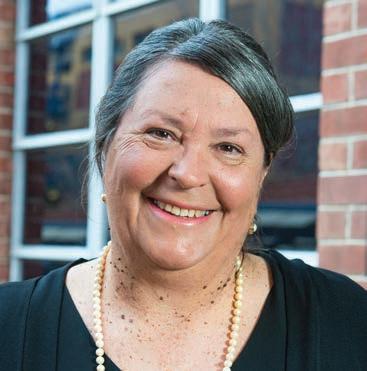
Professor Irene Watson’s home page at the University of South Australia: http://people.unisa.edu. au/Irene.Watson
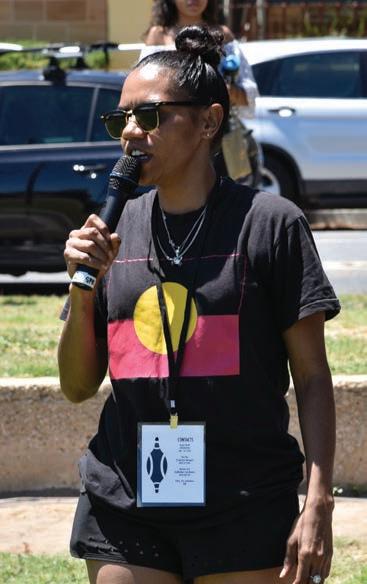

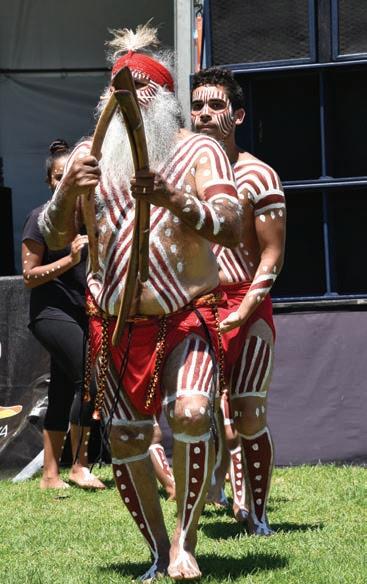
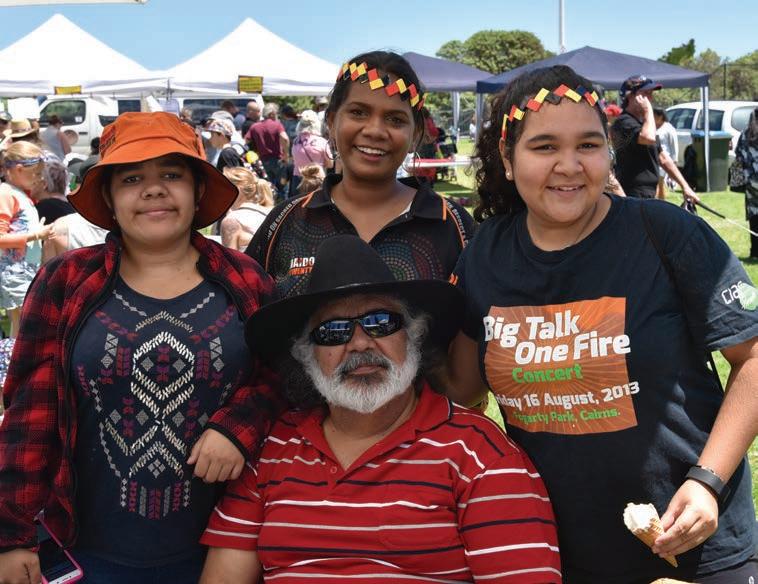
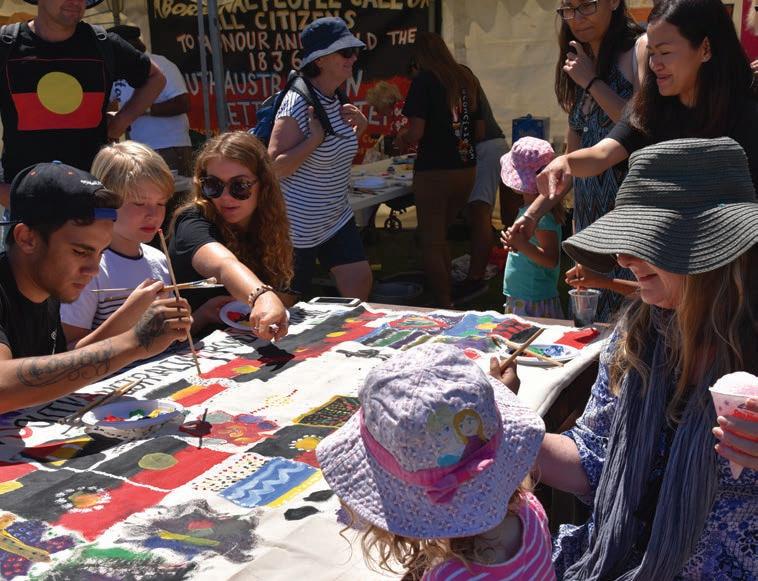
The debate continues each year about what 26 January represents in Australia and 2017 was no different.
This year’s public discourse was kicked off by the customary ‘lamb ad’ which polarised public opinion with its positive spin on Australia’s history.
Many celebrate Australia Day as a way to mark the survival of Indigenous Australians and their cultures, despite the injustices they have faced since the arrival of the first fleet in 1788.
NITV reported that Survival Day events are well established across the country after being launched by Aboriginal communities in Sydney in 2012.
However, according to Creative Spirits web forum, many Australians believe Australia Day is no longer an appropriate day for celebrations and call for a new day which includes all Australians.
This year, Twitter reported #changethedate grew by 1200 percent.
The idea of changing the date to May 8 – ‘mate’ was circulated this year with many responding positively to the date change and the wordplay. The annual Survival Day event at Semaphore foreshore attracted Aboriginal and non-Aboriginal people to celebrate and recognise survival of Aboriginal culture. Aboriginal Message spoke to attendees at the event to get their view of whether the 26 January is a date worth recognising. Laura said “I think for a lot of the country having an Australia Day is important but I think it is more important to remember that the 26 of January was the date of the invasion of Australia, perhaps May 8 would be a good day for it instead”. Kim Wanganeen said moving the date is a step towards reconciliation. “I think moving the date is an important thing to do because for me Australia Day represents dispossession and disempowerment. This day is also about recognising resilience and community and I think you cannot move forward unless you address the past but because of what Australia Day means, I think moving the date is important for reconciliation,” he said. Uncle Frank Nam said that Survival Day was about coming together and feeling a sense of belonging with your friends and family. “It’s great to have a day where you can feel comfortable, because for a long time you don’t feel comfortable in the community. It’s getting better but not to the extreme that you think it should be and it’s important to be here and enjoy the day,” said Uncle Frank. The Survival Day event included music, dance and bush tucker. Many services set up stalls to provide information to community on the day. The family event is growing each year and attracting a diverse audience.
Host, Natasha Wanganeen said it was a great turn out this year and the day is about Indigenous and non-Indigenous people coming together. “I absolutely love the Survival Day event, it’s my favourite time of year except for Spirit Festival. It’s an opportunity to stand up and stand strong with the rest of your community.
“The weather, the heat is why I kept moving, because I didn’t want to get sunburnt. Moving through the crowd you know, going from one side to another just letting everybody know that they are all a part of it. I think it’s important for the performers and the organisers to hear the voices of the public that come along and get their opinion about what the day means to them, whether they’re Indigenous or not, I think its very important to understand each other,” she said.
Despite views that the date should be changed, Survival Day is a success story showing how community can come together to celebrate resilience and reconciliation.
In January, Deputy Prime Minister Barnaby Joyce made his stance on Australia Day very clear by criticising those wanting to change the date, labelling them ‘miserable gutted’ and arguing it was ‘political correctness gone mad’. Prime Minister Malcolm Turnbull also expressed the idea of date change to be out of the question. If the politicians are unwilling to budge, it seems unlikely May 8 or any other date will be crowned Australia Day any time soon. Next year, the public debate will continue to simmer, another ‘lamb ad’ will circulate our screens, and people across the country will remain devoted to celebrating 26 January, whatever it means to them.
Aboriginal Way acknowledges with sadness the passing of Mr Raymond Agius, pictured on our cover. We send our sincere condolences to his family and thank them for permission to print Mr Agius’ image.
Clockwise from top left: Host Natasha Wanganeen; The audience at the Semaphore Foreshore; Major Sumner with the Tal-Kin-Jeri Dance Group; Flag painting at the Reconciliation SA stall; Families come together at Survival Day 2017.
Ken Wyatt: Australia’s first Aboriginal Federal Minister
Australia has its first Indigenous Federal Minister after Ken Wyatt was appointed to the position of Minister for Aged Care and Indigenous Health in January 2017.
Mr Wyatt was elevated to the Ministry following a cabinet reshuffle resulting from the resignation of the Health Minister Sussan Ley. He is a member of the Liberal Party of Australia and the member for Hasluck, an area on the outskirts of Perth.
The current Federal Parliament now includes five Indigenous parliamentarians – Mr Wyatt and Linda Burney hold seats in the House of Representatives, while the Senate includes Pat Dodson, Jacqui Lambie, and Malarndirri McCarthy.
A Noongar Yamatji man, Mr Wyatt was born in Bunbury in Western Australia. The son of a railway granger and a domestic worker, he was the eldest of ten. His mother grew up on the Roelands Mission.
After Ken was born the family moved to Nannine, then to Corrigin where he went to school. He completed his the last two years of high school in Perth. He trained as a teacher then moved into Indigenous health policy. Before entering politics, Mr Wyatt was the Director of Aboriginal Health within both the NSW and West Australian health departments. Mr Wyatt told NITV that he was inspired by Australia’s very first Aboriginal Federal politician, the late Queensland Senator, Neville Bonner. However, his experience made Mr Wyatt wary. “I watched Neville’s career and I got to know Neville and he was just an incredibly gentle man within the work that he did. I asked him about some of the challenges and he experienced some incredible challenges whilst he worked in the Parliament. And that’s why I thought I’d never go into politics” said Mr Wyatt. Asked by the ABC’s Stan Grant about the challenges ahead in his portfolio of Indigenous Health, Mr Wyatt said that responsibility for improving Aboriginal people’s health needed to be accepted right across the health system. “I believe we’ve got to look at how the whole health sector throws its weight behind the health of Aboriginal people,” he said. “Now we talk about Aboriginal Health and there is this construct behind Aboriginal Health that is based on Aboriginal Community Controlled Health Services (ACCHOs) and community organisations and specific programs that are funded by the Commonwealth.
“If we are truly serious, then what we should be doing is saying ‘well alright, how does the health sector, including all the ACCHOs, then tackle the issue to make sure that 800,000 Aboriginal and Torres Strait Islander people in this country have their health conditions improved, the prevalence rates of certain illnesses tackled in a way that sees a reduction?” said Mr Wyatt.
Mr Wyatt is a supporter of constitutional recognition and told the ABC that the national debate on that issue was on track. He said that the move to treaty and constitutional recognition were not in conflict.
“No, they’re not because I think the strength is in the constitution because the constitution is the document the high court base their decision around
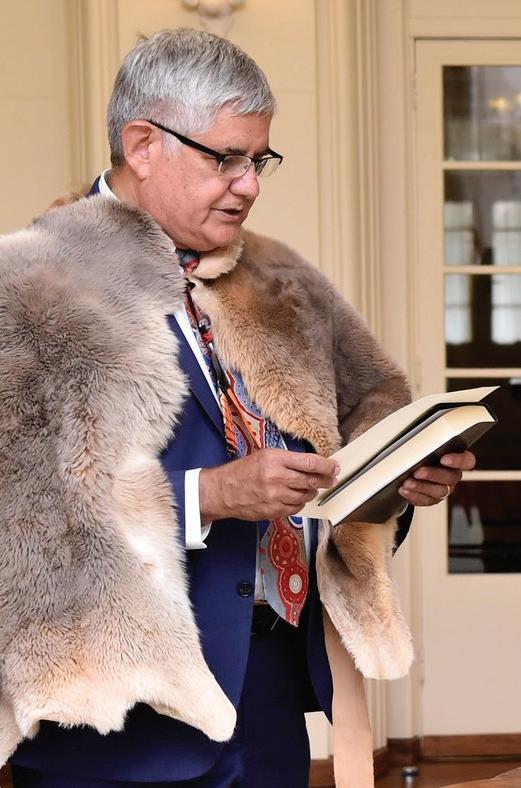
Ken Wyatt at the Ministerial swearing in ceremony.
when conflicts occur and around which legislation is framed against our founding document,” he said
“The issue with treaties is they are a way forward, but they are not set in the foundation of the country’s document. I’d rather see recognition first, then treaty.
“I don’t think the momentum is being lost because we have a dual conversation occurring now on both concepts and I would certainly hope we don’t abandon or set aside our desire to have recognition within the foundation document of this country,” said Mr Wyatt.
Native title groups need recognition under South Australian heritage law
Native title groups should be recognised under state government legislation as the registered bodies responsible for Aboriginal heritage on their country, according to a recent submission to government by SA Native Title Services (SANTS).
The Aboriginal Heritage Act 1988 (SA) was amended in 2016 and regulations that detail the working of the amended laws were recently opened up for comment by the state government. Changes to the Aboriginal Heritage Act included the establishment of Recognised Aboriginal Representative Bodies (RARBs), who can negotiate on issues of Aboriginal heritage on their country. The regulations for the amended Act do not mandate that native title holders for an area are appointed as the RARB. In making comments on the changes, SANTS said that giving authority to body corporates which represent traditional owners is a positive step in engaging the owners of Aboriginal heritage in decisionmaking in South Australia. Similar arrangements are in place in Queensland and Victoria.
However, the submission said that native title holders, claimants and their corporations must be given precedence to be appointed as RARBs in South Australia. Otherwise there is the potential for conflict between native title decisions and Aboriginal heritage decisions. The SANTS submission pointed out that the rights and interests recognised under native title are inclusive of Aboriginal heritage. For example, the first determination in South Australia in De Rose v State of South Australia recognised “the right to maintain and protect sites and places of significance to Nguraritja under their traditional laws and customs…”
Each subsequent native title determination made by the Federal Court has similarly recognised the rights of native title holders to look after Aboriginal heritage on their country. Following these determinations, Prescribed Body Corporates (PBCs) or Registered Native Title Body Corporates (RNTBCs) have been established to hold and manage the respective native title rights and interests. There are now 15 of those corporations in South Australia. These corporations already provide a sound, regionalised, traditional owner based governance framework that should be recognised in state government heritage policies, the SANTS submission said.
SANTS also recommended that RARBs be properly resourced to undertake their role, and that the Aboriginal Heritage Committee which would oversee the work of the RARBs have increased transparency and review provisions. SANTS also made comments on the Minister’s power to approve agreements under Sections 19M and 19N of the amended act. This change could mean that under certain circumstances it is no longer an offence to damage or disturb Aboriginal Heritage. SANTS recommended that this approval should only happen with the consent of all involved, including the relevant traditional owners.
A key part of the changed legislation was implemented following the passing of the Act through parliament and was not open for comment with the release of the regulations. That amendment was the removal of section 6(2) about Minister being required to hand some of his powers over to traditional owners. It had been used shortly before the legislation had been passed to overturn the former Aboriginal Affairs Minister Grace Portelesi’s decision to authorise a mining company to damage, disturb or interfere with heritage sites, objects or remains on Lake Torrens. Passing the amended Act in state parliament meant that the Minister for Aboriginal Affairs was no longer required to comply with the federal court’s ruling to hand powers over to the native title groups in this area. SANTS will continue to advise native title groups on the changes to the Aboriginal Heritage Act. The final version of the regulations and guidelines for the Aboriginal Heritage Act will be released by the state government in the near future.
